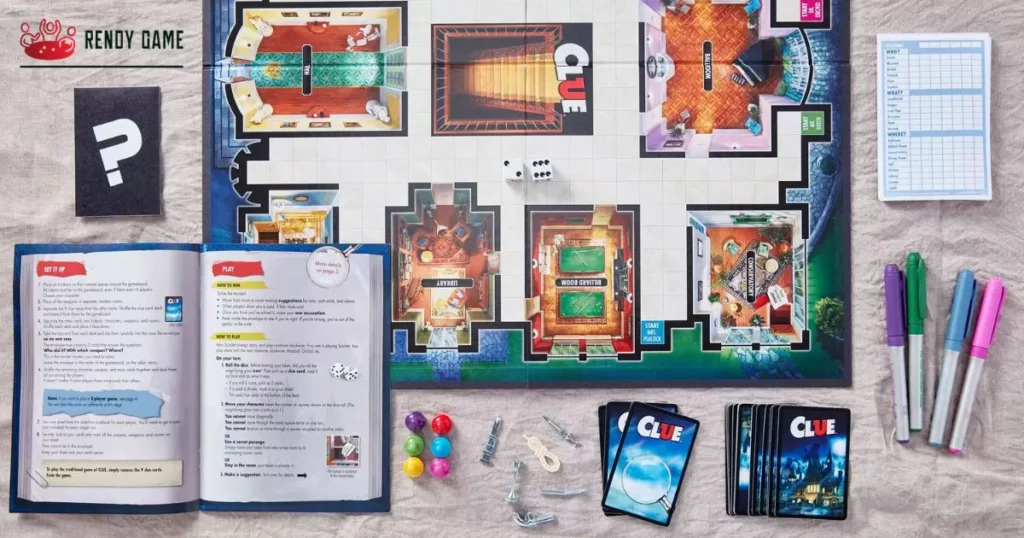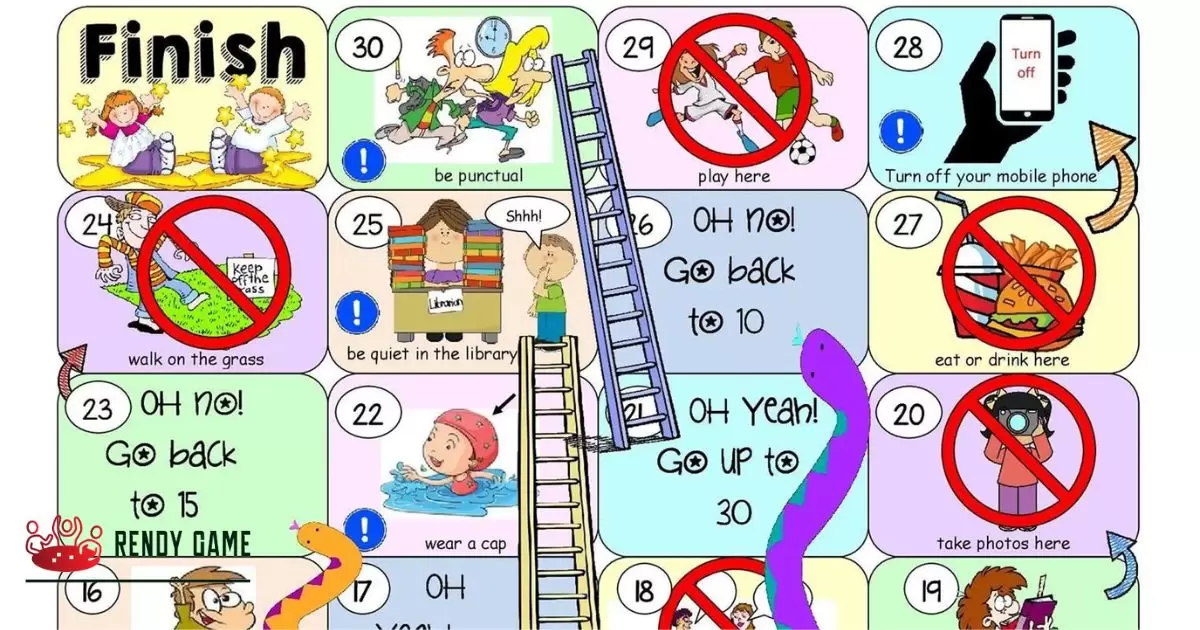Board game rules refer to the specific instructions and guidelines that dictate how a particular board game is played. These rules outline the objectives of the game, the setup, the order of play, and the conditions for winning or losing.
They are not mere formalities but the essential foundation upon which the excitement and fun of the game are built. Would you rather board game rules can make or break the gaming experience.These rules dictate how players will choose between two often amusing, challenging, or thought provoking options, leading to unexpected outcomes.
The importance of board game rules cannot be overstated, as they establish a common ground for all participants, ensuring fairness and order. They create a level playing field where all players have equal opportunities to succeed based on their choices and actions.
The Basics of Board Game Rules
In the realm of board games, regardless of the specific game being played, understanding the basics of board game rules is a fundamental starting point. These rules serve as the architectural blueprint that structures the game, encompassing the objectives, the sequence of play, and the conditions for victory or defeat.
In the context of the Would You Rather board game, these rules dictate how players will take turns navigating intriguing hypothetical scenarios, forcing them to make choices between two equally captivating options.
What are the Purpose of Game Rules?
While it might be tempting to skim over the rulebook and dive right into the gameplay, it’s essential to recognize that game rules have a profound purpose. They are far more than a formality, they are the invisible referees of the game, ensuring fairness, order, and enjoyment for all participants.
These rules establish a level playing field, where each player has an equal opportunity to excel based on their decisions and strategies. This equilibrium is particularly crucial in a game like Would You Rather, where the objective is to spark conversations, challenge decision making abilities, and strengthen social bonds.
The Unique Appeal of the Would You Rather Board Game
The Would You Rather board game occupies a special niche in the world of tabletop gaming, primarily due to its unique and engaging nature. It deviates from the traditional board game model, focusing instead on a collection of intriguing hypothetical scenarios. Within this realm, players are confronted with two equally enticing or challenging options and are compelled to make a choice.
The allure of this game lies in its ability to generate unexpected outcomes, ignite spirited discussions, and elicit bursts of laughter. Would You Rather thrives on its capacity to stimulate creativity, encourage strategic thinking, and uncover humor in decision making.
Setting up the Board Game Rules

Before embarking on a thrilling adventure through the world of Would You Rather, it is paramount to ensure that the board game rules are correctly set up. The setup process encompasses several crucial steps, including arranging the game components, designating a game master or moderator.
This prelude to the gameplay serves as the cornerstone for a seamless and enjoyable gaming experience. By ensuring that everyone starts on the same page, you mitigate confusion and disputes that could potentially arise during the game. Proper setup is the key to an enjoyable Would You Rather experience.
Navigating Board Game Rules Through the Rulebook
Understanding the Would You Rather board game rules starts with delving into the rulebook. The rulebook serves as your trusty guide, detailing every aspect of the game. It covers how to set up the game, the order of play, and the conditions for victory.
Take your time to familiarize yourself with this essential document, as it paves the way for a seamless and enjoyable gaming experience. Within its pages, you’ll discover the key to mastering the game and ensuring everyone has a fair and fun time.
Making Choices and Scoring Game Rules
In the Would You Rather board game, making choices and scoring are central to the gameplay. Players take turns presenting challenging scenarios, and their fellow gamers must make their choices. These choices often lead to amusing or intriguing discussions, adding an exciting element to the game.
Each choice you make can earn you points based on the reactions of your peers, and the game’s scoring system tracks your progress. The thrill of accumulating points through clever choices and witty responses keeps the game engaging and competitive, making it a fantastic way to enjoy quality time with friends and family.
| Player | Scenario Presented | Choice Made | Scoring Points |
| Player 1 | Would you rather be invisible or fly? | Invisible | 10 points |
| Player 2 | Would you rather have super strength or super speed? | Super strength | 8 points |
| Player 3 | Would you rather travel to the past or the future? | Past | 9 points |
| Player 4 | Would you rather have a pet dragon or a time machine? | Time machine | 7 points |
| Player 5 | Would you rather live in a treehouse or a castle? | Castle | 6 points |
The Role of the Game Master or Moderator in Board Game Rules
In this board game, the Game Master or Moderator plays a pivotal role in ensuring smooth gameplay. This person is responsible for reading out the challenging Would You Rather scenarios and keeping track of the rules. The Game Master’s impartiality and ability to maintain the flow of the game are crucial.
They ensure that all participants have a fair chance to respond, and they also handle disputes or questions about the rules. Their presence ensures that the game runs smoothly, and everyone can focus on making entertaining choices and scoring points.
Strategies for Winning the Game
When it comes to mastering the Would You Rather board game, having a few strategies up your sleeve can greatly increase your chances of success. First and foremost, pay attention to the preferences and tendencies of your fellow players. Knowing their inclinations can help you tailor your choices to gain an advantage.
Consider the context of the question and your audience, as humor and creativity can go a long way in swaying decisions. It’s also essential to strike a balance between provocative and lighthearted questions to keep the game engaging.
Common Mistakes to Avoid
To make the most of your Would You Rather board game experience, it’s crucial to steer clear of some common pitfalls that players often encounter. One prevalent mistake is taking the game too seriously or making choices based solely on what you’d personally prefer.
Remember that the game is meant for fun and amusing discussions. Another misstep is not respecting the decisions of others, as respecting diverse opinions is a key element of the game’s appeal. Avoid overly controversial or sensitive questions that may lead to discomfort within the group.
Variations and Customization of Rules
One of the great aspects of the Would You Rather board game is its adaptability. You can customize the rules to suit your group’s preferences and make the game uniquely your own like which witch is board game. Some players like to introduce themed rounds, focusing on specific topics or genres of questions.
Others may opt for a more competitive style by incorporating timers for decision making. You can also adjust the scoring system to award points differently for more challenging choices. You can experiment with the role of the game master or moderator, allowing different players to take turns leading the game.
Frequently Asked Questions
What happens if players can’t agree on a choice during the game?
In case of a tie or indecision, the game master or moderator can have the final say, or you can use a random method like a coin toss to determine the outcome.
Is there a time limit for making decisions in the game?
Time limits are optional, but they can add excitement. You can use an hourglass timer or a designated timekeeper to keep the game moving at a brisk pace.
Are there official rules, or can I adapt the game to my preferences?
While there are standard rules, the game is highly customizable, and you’re encouraged to adapt it to create the most enjoyable experience for your group.
What happens if there’s a tie in scoring during the game?
In case of a tie, you can opt for a tiebreaker round with challenging questions or simply share the victory.
Conclusion
In the world of board games, rules serve as the guiding stars, leading us through the playful galaxies of imagination and fun. They’re the quiet architects that craft the structure of each game, ensuring everyone can join the adventure with clarity and fairness.
As we’ve delved into the Would You Rather board game and explored the significance of board game rules, we’ve uncovered the magic that lies within these guidelines. From setting up the game to crafting unique strategies and avoiding common pitfalls, these rules are the invisible hand that orchestrates moments of laughter, excitement, and connection.

